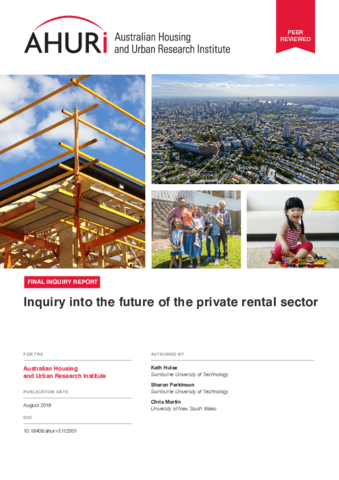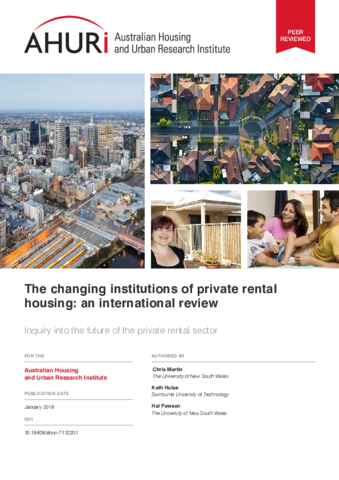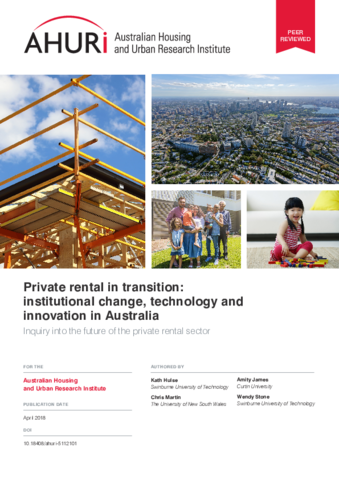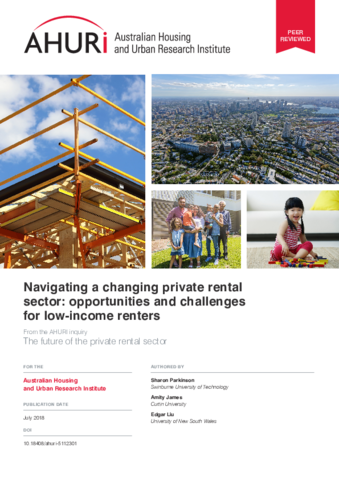From the AHURI Inquiry: Inquiry into the future of the private rental sector
This research investigates how low-income renters access the private rental sector (PRS) and provides an evidence-base on changing practices and ways forward in shaping equitable PRS institutions.
The report examines three related intermediary pathways of tenancy access and management within the PRS for individuals and households with a low-income:
- the formal pathway is managed via traditional or mainstream real estate agent intermediaries and is governed by residential tenancy acts within each state and territory in Australia. The formal pathway is the most common across individuals and households but is increasingly more competitive and difficult to access for those on low incomes.
- The informal pathway bypasses mainstream intermediaries to go direct to rooms and dwellings privately managed by landlords and sub-landlords, and is characterised by limited transparency and tenure protection; and
- the rogue pathway of last resort includes unregistered boarding house living arrangements or room rentals, including overcrowding within small apartments. Housing experiences within this pathway tend to be more exploitative, with increased risk of renting from landlords and sub-landlords who do not abide by or are not familiar with the relevant Residential Tenancies Act.
Reforms of rental housing assistance and regulation must seek to redress the growing imbalance in horizontal equity (treating those with similar incomes and wealth the same) and vertical equity (reducing the divide between those at the top and bottom of the income and wealth distribution). This includes reviewing the adequacy of wages, statutory incomes and rental assistance in view of rising costs of living. Regulation of informal rental practices, particularly in the context of online intermediaries and the growth of room rentals, must ensure that supply and access to urgent housing is not impeded, whilst also ensuring that tenants have adequate recourse to live in safe and secure rental housing.





